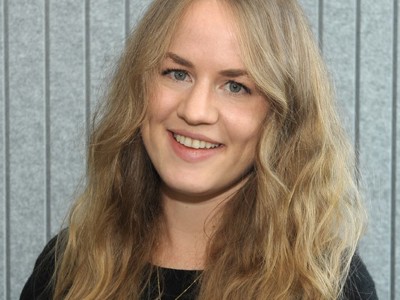
Wealth, Power and Impunity: Sexual Abuse by Powerful Men
Georgia Rycroft discusses why Mohamed Al Fayed was never held to account for claims of sex trafficking that have come to light since his death.
Posted on 09 December 2024
This post contains discussion of sexual harrassment and assault
Recent allegations concerning the late Mohamed Al Fayed have followed a familiar pattern to those of Harvey Weinstein and Jeffrey Epstein.
Power and wealth have long proved robust shields for men who seem able to operate in plain sight. Like others, Fayed is now deceased and can never be made to answer for his actions.
Yet many of the same questions remain. How and why has it taken so long for survivors of appalling abuse to be heard? And will anything change when it comes to the accountability of wealthy and powerful abusers?
Sex Trafficking and Historical Prejudice
Sex trafficking has almost always existed in different forms, but over time both domestic and international concern began to grow over the protection of “white” women. In 1910, the ‘International Convention for the Suppression of the White Slave Traffic’ was signed at a meeting of the League of Nations. In part a growing concern over underage sex workers, alongside the paternalism of the era preoccupied with the morality and control of “white” women, led to what was arguably a first attempt at an international definition of sex trafficking (albeit overtly confined by the ingrained racism of the past). Its aim was to ensure punishment for, amongst other offences, any person who, for the gratification of others, “by fraud or by the use of violence, threats, abuse of authority, or any other means of constraint, hired, abducted or enticed a woman or a girl…”.
Over subsequent decades, the United Kingdom was governed by a patchwork of historical legislation. Instruments such as the Sexual Offences Act 1956 included offences such as those for the procurement of women by false pretences or threats, for the purposes of unlawful sexual intercourse. Yet in the case of Mohamed Al Fayed, not only was he apparently immune from investigation, no others in his network appear to have been seriously scrutinized for their facilitation of decades of abuse. The question is why?
The Case of Mohamed Al Fayed
The extent of Mohamed Al Fayed’s alleged sex trafficking network is extraordinary, and there seems little doubt that he did not operate alone. The deliberate recruitment of young women, via the promise of lucrative employment, gifts or money, often following by threats and intimidation in the context of sexual abuse, are common features of the allegations which have surfaced in recent months.
From the supervisors who may have sent women to Fayed’ office, the security guards who reportedly escorted them to and from his apartments, the personnel who may have approved the transfer of young female staff, or the lawyers who penned extensive non-disclosure agreements.
These are cases of serious sexual violence, abuse, and rape, where young women may be handpicked from a shop floor and hand delivered to a powerful abuser. As far back as 1998, Tom Bower wrote in his ‘Unauthorised Biography’, “Fayed felt no shame about his conduct. Indeed it was fun, which over the past years he had grown to enjoy – by assuming that Harrods’ young female employees, so vulnerable and financially dependent, belonged to him. Thankfully, his senior directors tolerated his attitude”.
Failed Accountability and the Met Police
The extent of the current claims against Fayed run well beyond his Harrods empire, and even his actions alone. From threats orchestrated by his private security team, to the extensive use of non-disclosure agreements, demands for the destruction or shredding of evidence, control and bribery of senior staff, what happened in plain sight was seemingly unseen.
Through his wealth and influence, Mohamed Al Fayed was highly effective in enforcing silence, and was able to continue seemingly unchallenged. What is remarkable is the apparent absence of any serious attempt by the criminal justice system to hold Fayed, or his enablers, to account.
According to the Metropolitan police, they held reports from 21 women who accused Fayed between 2005 and his death in 2023. However, there has been at least one report of police being informed of allegations of sexual assault a decade earlier in 1995.
Although an investigation has now been opened by the Met, for many women this is revealing of a broader historical attitude which has surrounded the Met for many years.
Baroness Casey’s 2023 review into the Met, following the murder of Sarah Everard, found an organisation mired by institutional racism, misogyny, and homophobia that was ‘unable to police itself’.
There are many good officers who are no doubt devastated by the institution’s wider failures. Yet, the case of Mohamed Al Fayed is but another highly concerning example of serious institutional failures in respect of women, with allegations of police corruption enabling a serial offender.
We will never know whether the outcome could have been different, but the operations of Fayed highlight the serious need for scrutiny of multiple issues within the public interest.
We must ask whether it is suitable that the police force that failed so many survivors, is tasked with marking its own homework; or where the decisions lay in the CPS twice declining to prosecute Fayed.
Then there are allegations of the oppressive use or threat of legal action to bully or force women into silence, alongside the media who sought to support them.
There is also the historic refusal of the General Medical Council to investigate medical professionals who allegedly performed invasive gynaecological examinations on young women, ostensibly for the purposes of employment at Harrods. The list of concerns raised in this matter have only grown. What we have seen is a series of institutional failures, of survivors being repeatedly disbelieved or told there was nothing to be done.
“I think if I knew, everyone knew. Anyone who says they didn’t is lying, I’m sorry,” said Tony Leeming, a former Harrods department manager who spoke in the recent BBC documentary.
During this year’s 16 days of Activism against Gender-Based Violence, Leigh Day’s call to action is to support a public inquiry into Harrods, Mohamed Al Fayed and any and all actors, including the Metropolitan Police, the CPS, and medical professionals, that might have had contact with survivors, or knowledge of ongoing and widespread abuse.
Supporting investment in understanding how these networks operate, why so many women are silenced and trapped into cycles of abuse, and how the law, government, private sector, and other bodies can change is vital to ensuring that rich and powerful abusers can never again operate with impunity.
Support for survivors of abuse - you can contact any of the relevant organisations included on our webpage, who may be able to provide you with the information or support which you require.

Georgia Rycroft
Georgia is an associate solicitor in the international and group litigation team, specialising in litigation arising from human rights abuses and environmental damage involving multinational corporations.

Harrods abuse claim
We know that coming forward with allegations of sexual abuse can be incredibly difficult. Our compassionate and dedicated solicitors specialise in this area of law and are committed to supporting survivors in their pursuit of justice.

Potential legal claims investigated against Harrods following rape and sexual abuse allegations in BBC documentary
Law firm Leigh Day and US law firm Motley Rice are investigating potential legal claims regarding allegations of trafficking, rape, serious sexual assault and psychological abuse, and exploitation, suffered by individuals while employed by famed luxury department store, Harrods.

